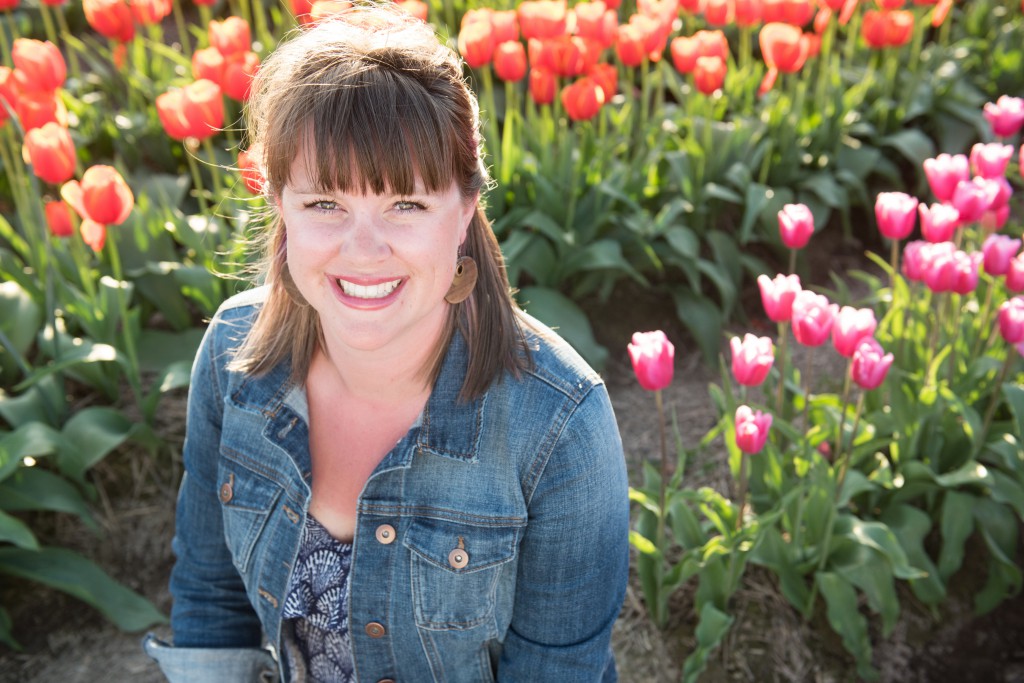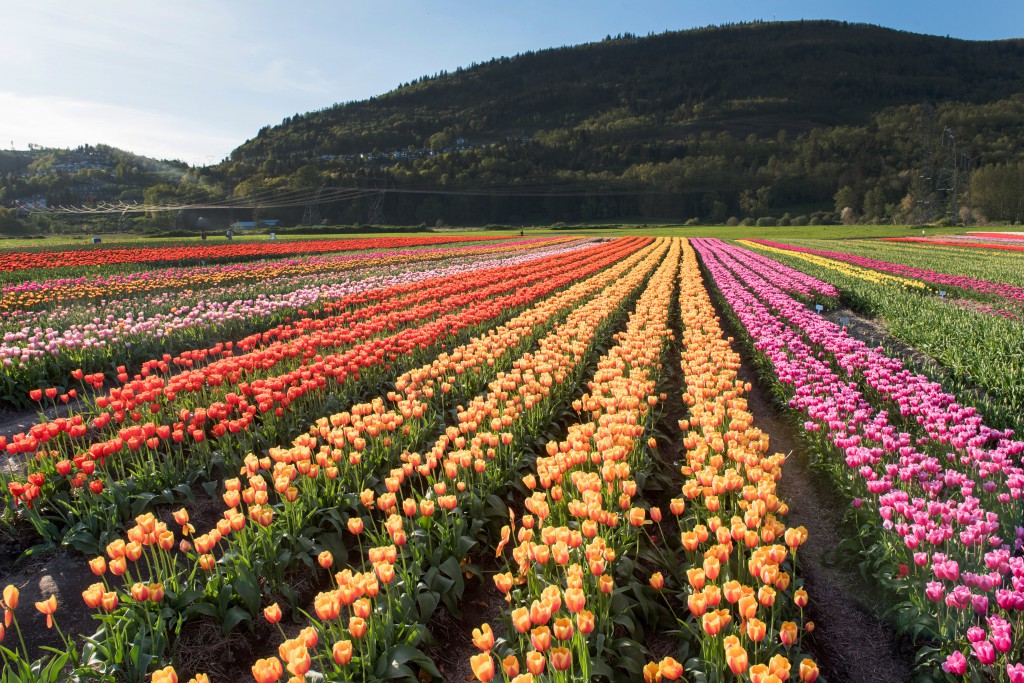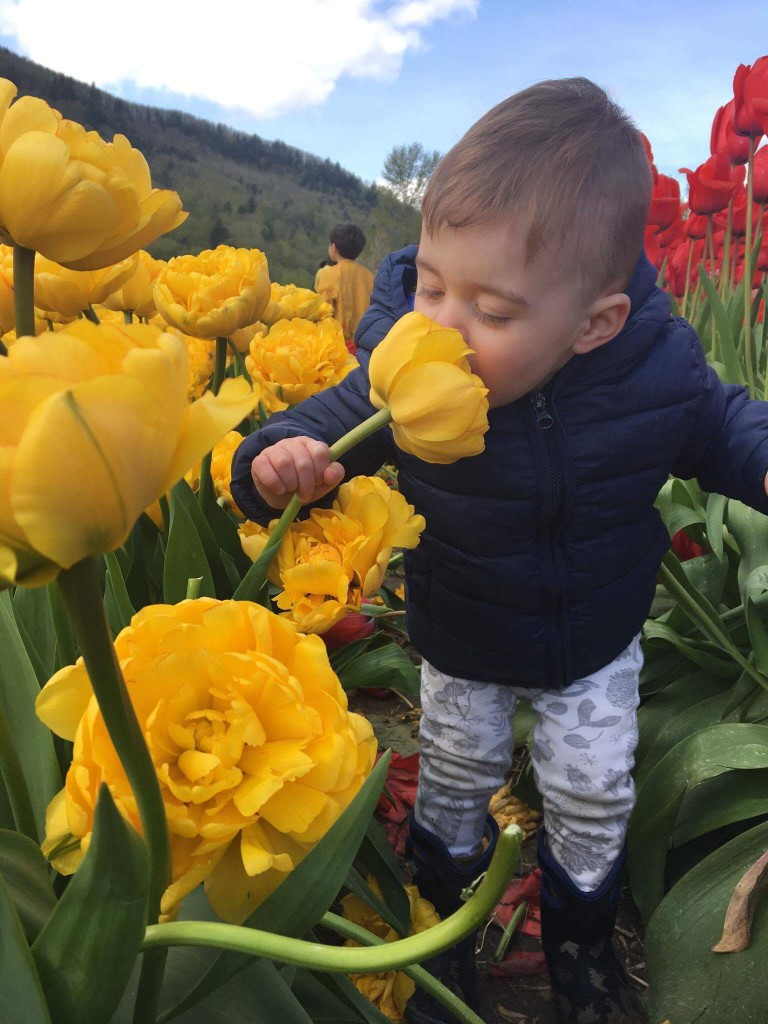
It’s early in June, 2017, and the flood of spring visitors to the Abbotsford Bloom Tulip Festival has ended, but the work for next year’s event has just begun. Overseeing the digging up of the tulip bulbs to place in storage, and preparing for the 2018 season keeps owner Alexis Warmerdam very busy indeed.
Three generations of Warmerdams have been growing flowers for the wholesale market on their cut-flower farm, Lakeland Flowers, but Alexis saw an opportunity to expand into the agri-tourism market.
“My Grandpa moved from Holland in 1958, settling in Aldergrove first, and started the farm in 1974,” Alexis explains. “He began with gladiolas and daffodils, and then my dad took over in the 80s, adding tulips and eventually peonies.”
Over the past few years, Alexis followed the success of tulip festivals in Washington, Oregon, Texas, New England, Australia . . . and, more locally, Tulips of the Valley in Agassiz.
“Tulip festivals are not a new idea, but I was able to leverage what we already have—equipment, bulb stock and generational knowledge.”
With support and encouragement from her father, Alexis began planning a tulip festival for 2016 in the fall of 2015 and leased a separate location from the farm.
“It was coincidental that the same year I started, Tulips of the Valley took a year off to relocate to Chilliwack,” says Alexis. “It was quite the surprise to hear I would be the only local festival. It’s great that we do have two festivals—there’s definitely room for us both. There is such a huge interest in seeing tulips on a grand scale.”
The visually stunning, rainbow–hued fields of Bloom, located an hour east of Vancouver, BC, are a feast for the eyes and a photographer’s dream. The festival drew thousands of visitors out to the Fraser Valley; and, as well as U-cut fields, a flower shop and activities for kids, there are also concessions, food trucks, a picnic area, and washroom facilities. Alexis also plans to expand merchandising and hints she might have a few new things up her sleeve for next year.
“In 2016, the challenge was getting people to us through the Whatcom Road interchange, and we caused a bit of a traffic problem,” Alexis chuckles. “The amount of people that showed up in 2016 still shocks me. We were prepared to start small and grow over five years, but we weren’t prepared for the volume of people. This year we had traffic management in place, and didn’t cause too much of a disruption—I hope!”
In 2017, the festival ran from mid-April to mid-May, opening at 9 a.m. and closing at dusk. You could even buy special passes to watch the sunrise before the throngs arrived. The fields bloomed with 60 varieties of bulbs—40 from the family farm, then 20 specialty varieties from Holland.
The Bloom Festival also partnered with Tourism Abbotsford for a photography contest that was very successful. Winners won a Taste of Abbotsford package.

“Our attendance was a little down this year due to the weather and an increase in our prices,” Alexis mentions. “We increased our weekend prices to try and spread visitors out through the rest of the week, which worked. Visitors can save on admission by purchasing ahead online. And they can get better deals mid-week.”
“I would like to increase our parking lot size too, and I am working with the land commission on that. We are looking at different options including a reclamation plan for the soil to be returned to farm quality. The original parking lot is on degraded farmland, and the planned addition is of the same quality.”
Other improvements include drains in the fields to avoid the wet spots that occurred this year from increased precipitation in the Fraser Valley.
The best time to attend the festival is the last two weeks of April, but the best thing to do is follow Bloom’s social media sites and check the weather before planning a trip.
If anyone is interested in collaborations, they should get in touch with Alexis. “The festival is a great opportunity for education,” she states. “Whether that’s field trips or adding posters on site, I am all about promoting awareness and educating about all agriculture sectors—not just flowers. Once I’m confident the operations side of the festival is taken care of, my next goal is to develop an education program.”
Alexis has regular help from her assistant Ashleigh throughout the year, and hires about 30 students during peak times.
“This year we also had volunteers from the Kiwanis Club and Yale Rugby Club, and we donate to their organizations in kind. We contributed to Kiwanis scholarships and the Rugby Club trip to Europe—another way to collaborate and build community in Abbotsford.”
For more information or to contact Alexis, visit abbotsfordtulipfestival.ca.













